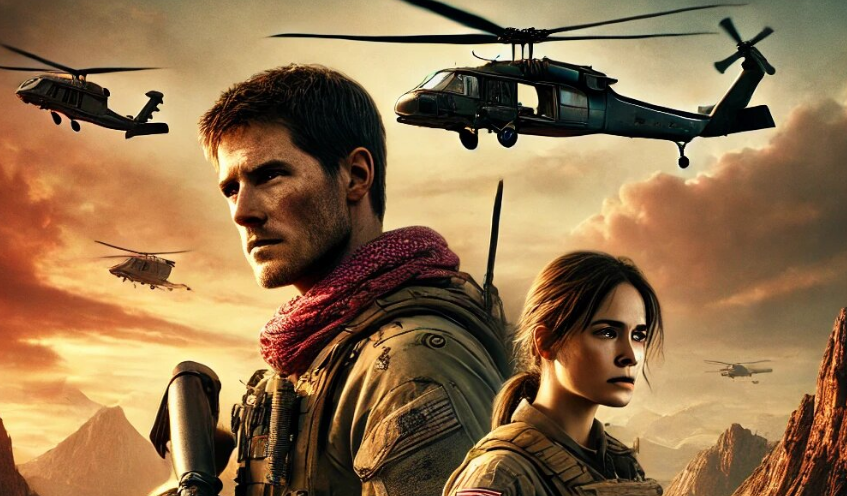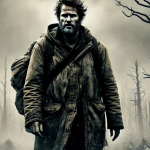𝙃𝙮𝙚𝙣𝙖 𝙍𝙤𝙖𝙙 (𝟮𝟬𝟭𝟱)

𝙃𝙮𝙚𝙣𝙖 𝙍𝙤𝙖𝙙 – 𝙊𝙁𝙁𝙄𝘾𝙄𝘼𝙇 𝙏𝙍𝘼𝙄𝙇𝙀𝙍
Hyena Road, directed by Paul Gross, is a Canadian war film released in 2015 that delves into the complexities of modern warfare and the human experiences that unfold amidst conflict. Set against the backdrop of the Afghanistan War, the film offers a gritty and realistic portrayal of soldiers navigating the challenges of combat, loyalty, and morality.
Plot Overview
The story follows a group of Canadian soldiers stationed in Afghanistan, specifically focusing on the construction of a strategically important road—Hyena Road—through hostile territory. The road is crucial for connecting remote villages to military bases, allowing for the transport of supplies and personnel.
The film centers around three main characters:
- Major Mitch Nelson (Paul Gross): A seasoned officer grappling with the harsh realities of war while trying to maintain the safety of his troops and the local Afghan population.
- Master Corporal “Sully” Sullivan (Aaron Poole): A skilled sniper who faces the psychological toll of warfare and questions the morality of their mission.
- Warrant Officer “The Colonel” (Dylan Bruce): A commanding presence who balances the pressures of military duty with the ethical dilemmas posed by their operations.
As the soldiers face ambushes and hostile encounters with the Taliban, the film explores themes of sacrifice, camaraderie, and the blurred lines between right and wrong in the chaos of war. The narrative unfolds through a mix of action sequences and moments of introspection, illustrating how the soldiers cope with the fear and uncertainty that accompany their mission.
Themes
Hyena Road addresses several significant themes, including:
- The Nature of War: The film examines the brutal realities of combat, highlighting the challenges soldiers face on the ground. It portrays the physical and emotional toll of warfare, including the impact on soldiers’ mental health.
- Cultural Understanding: The interactions between Canadian soldiers and Afghan locals underscore the complexities of foreign intervention. The film emphasizes the importance of cultural sensitivity and understanding in a conflict-ridden environment.
- Morality and Ethics: Characters grapple with the ethical implications of their actions, raising questions about the morality of warfare and the consequences of military decisions on innocent lives.
Cinematic Elements
Paul Gross utilizes a gritty visual style to capture the harsh landscapes of Afghanistan and the intensity of combat. The cinematography effectively immerses the audience in the experience of the soldiers, with action sequences that are both thrilling and unsettling.
The film’s pacing balances moments of intense action with quieter, reflective scenes, allowing viewers to connect with the characters on a personal level. The performances of the ensemble cast, particularly Gross, Poole, and Bruce, lend authenticity to the narrative, portraying the complexity of their characters’ emotions and experiences.
Reception
Hyena Road received mixed reviews from critics, with praise for its realistic portrayal of war and the depth of its characters. While some felt the film could have delved deeper into certain aspects, it is generally recognized for its earnest approach to storytelling and its focus on the human element of conflict.
Conclusion
Hyena Road is a thought-provoking war film that offers a nuanced perspective on the challenges faced by soldiers in modern warfare. Through its exploration of themes like sacrifice, morality, and cultural understanding, the film resonates with audiences by presenting a compelling narrative that honors the complexities of the human experience in the context of conflict. As a work of cinema, it serves as a reminder of the personal stories behind the headlines, inviting viewers to reflect on the true cost of war and the bonds forged in its midst.














